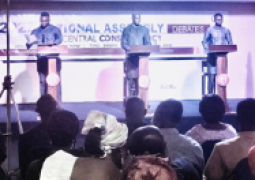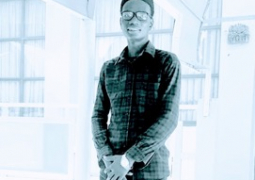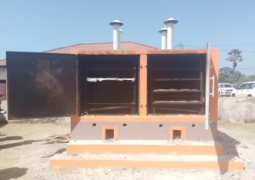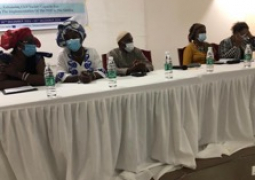Musu Kuta Komma, ChildFund country director, said the Ministry of Women, Children and Social Welfare is coordinating and leading the initiative and going through the process. She said ChildFund and many other child development and protection stakeholders felt the need to include the voices of children. She noted that reviewing children’s instrument or policies can never be complete without hearing their voices.
She added that this is also another sub milestone that they think is very important for them to be able to accomplish the task of reviewing the children’s Act as a nation. “In doing so, it is important for us to meet as technical people to do justice first in preparing ourselves as we consult children.”
“We are of the view that once we are able to consult children, their views and opinions are heard and included in the national instrument, it will be easier for us to be able to roll out and socialise the instrument and the children themselves would play a key stake in rolling and implementing the revised Act that we are about to produce after this process.”
Henceforth, she added, ChildFund feels that we need to collaborate with partners to really look at the tools and revise all the instruments that we are going to use to consult and engage the children with.
Omar Mbakeh, deputy director of Children’s Affairs, at Ministry of Gender, Children and Social Welfare, said their convergence has been a process that has been taking place for a very long time which is the review of the Gambia’s Children Act 2005.
According to him, child protection issues and their welfare in this country is a priority for government and everybody. “So therefore, we need to ensure as a government, as stakeholders, as partners, as individuals and as communities to have their welfare and protection looked at.
“We have seen a lot of things happening to children and as a result, a lot of things are emerging so the stakeholders through consultation felt that it’s important we review the Act.”
Furthermore, he posited that reviewing the Act means it has to be consultative because government cannot do it all alone. “So we have to bring on board all the stakeholders that is the government, development partners, CSO’s as well as the communities.
Mr. Mbakeh added that the process has been in phases, the first phase was through a desk review in which “we recruited the service of a lead facilitator who would work with her team and all the stakeholders including government to make sure that the review is done appropriately.”
The second phase, he explained, was stakeholders consultation which has to do with going round the country to meet with child protection actors across the regions and other government agencies to dialogue with them about the welfare and protection of children in this country; and how far have we have gone in successfully implementing the policies that govern the children in this country.
“The other phase that we want to introduce is to dialogue with the children because all that we are doing is for them so nothing goes for children without their involvement and consent as that would help us to know those issues that are affecting them.”





